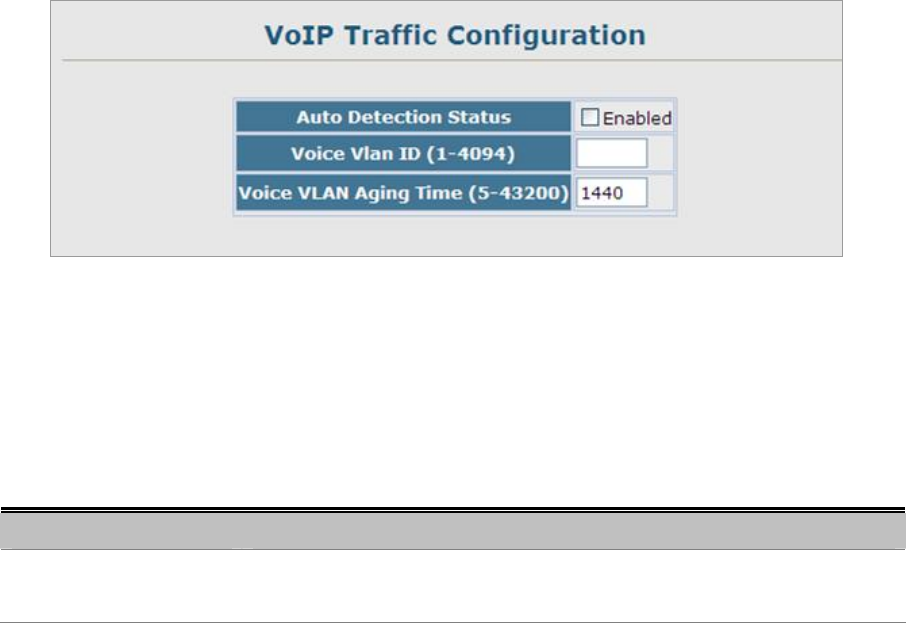
User’s Manual of SGSD-1022 / SGSD-1022P
SGSW-2840 / SGSW-2840P
250
4.10.4 Voice VLANs
When IP telephony is deployed in an enterprise network, it is recommended to isolate the Voice over IP (VoIP) network traffic
from other data traffic. Traffic isolation can provide higher voice quality by preventing excessive packet delays, packet loss, and
jitter. This is best achieved by assigning all VoIP traffic to a single Voice VLAN.
The use of a Voice VLAN has several advantages. It provides security by isolating the VoIP traffic from other data traffic.
End-to-end QoS policies and high priority can be applied to the VoIP VLAN traffic across the network, guaranteeing the
bandwidth it needs. VLAN isolation also protects against disruptive broadcast and multicast traffic that can seriously affect voice
quality.
The Managed Switch allows you to specify a Voice VLAN for the network and set a CoS priority for the VoIP traffic. VoIP traffic
can be detected on switch ports by using the source MAC address of packets, or by using LLDP (IEEE 802.1AB) to discover
connected VoIP devices. When VoIP traffic is detected on a configured port, the switch automatically assigns the port as a
tagged member the Voice VLAN. Alternatively, switch ports can be manually configured.
4.10.4.1 VoIP Traffic Configuration
To configure the switch for VoIP traffic, first enable the automatic detection of VoIP devices attached to Managed Switch ports,
then set the Voice VLAN ID for the network. The Voice VLAN aging time can also be set to remove a port from the Voice VLAN
when VoIP traffic is no longer received on the port.
Figure 4-10-26 VoIP Traffic Configuration page screenshot
1. Click QoS, VoIP Traffic Setting, Configuration.
2. Enable Auto Detection, specify the Voice VLAN ID, the set the Voice VLAN Aging Time. Click Apply.
The page includes the following fields:
Object Description
Auto Detection Status
Enables the automatic detection of VoIP traffic on switch ports.
(Default: Disabled)


















